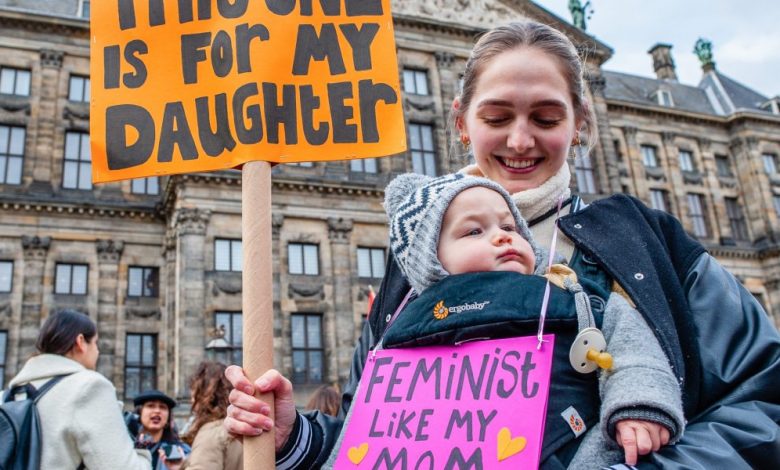Gender equality will only be achieved at this rate in 300 years, says the UN Secretary-General

Women’s rights are “abused, threatened and violated” around the world, and gender equality will not be achieved on the current path for 300 years, the United Nations Secretary-General warned on Monday.
Antonio Guterres, speaking at the inaugural session of the Commission on the Status of Women – the UN’s first global body fighting for gender equality – said decades of progress are dwindling because “patriarchy is striking back”.
Referring to Afghanistan, where “women and girls have been erased from public life,” the UN chief said many countries are restricting women’s sexual and reproductive rights.
He also said that in many places girls attending school are at risk of being kidnapped and assaulted, and he complained that police are preying on vulnerable women who are supposed to be protecting them.
“From Ukraine to the Sahel, crises and conflicts hit women and girls first and worst,” Guterres said.
In other setbacks, he said, maternal deaths are rising and the impact of COVID-19 is forcing girls into marriage and keeping them out of school, while keeping mothers and carers away from paid work.
During its two-week meeting, the Commission on the Status of Women will focus on closing gender gaps in technology and innovation. The Secretary-General said the issue couldn’t be more timely as women and girls are left behind as technology advances.
“Three billion people are still not connected to the internet, the majority of them women and girls in developing countries, (and) in least developed countries only 19% of women are online,” Guterres said. “Globally, girls and women make up only a third of students in science, technology, engineering and mathematics.
In the tech industry, men outnumber women two to one, and in the growing field of artificial intelligence, only about one in five workers is a woman, he said.
He said “big data” is the basis of political and business decisions, “but it often ignores gender differences — or turns a blind eye to women altogether — resulting in products and services that bake a gender inequality from the start.”
Guterres called for urgent action to balance power between men and women.
He said there must be more education, employment and income for women and girls, especially in developing countries. He called for promoting the full participation and leadership of women in science and technology “from governments to boardrooms and classrooms”.
Guterres also said there is a need to create a safe digital environment that eliminates “misogynist disinformation and misinformation” and “gender trolling” on social media.
Sima Bahous, Executive Director of UN Women, said at the commission’s inaugural session that “the digital divide has become the new face of gender inequality”. She said that last year 259 million more men than women were online.
She also cited a survey of women journalists from 125 countries that found three quarters had experienced online harassment in the course of their work and a third had self-censored in response.
In Afghanistan, Bahous said, women who spoke out via YouTube and blogs were flagged by the Taliban, and many fled the country to ensure their safety. In Iran, many women continue to be targeted for participating in online campaigns, she said.
She said the challenge is to “fix the institutions and harmful gender stereotypes around technology and innovation that are failing women and girls” and ensure online spaces are free from abuse and abusers are held accountable.
“If we don’t leave this session after saying together and unequivocally, ‘Enough, no more,’ then we have failed,” Bahous said.
Learn how to navigate and build trust in your organization with The Trust Factor, a weekly newsletter exploring what leaders need to succeed. Login here.



